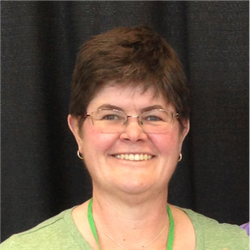
Sonia Hall
Facilitator
SAH Ecologia
Dr. Sonia A. Hall received her bachelor’s degree in Agronomy from the University of Buenos Aires, Argentina, and her PhD in ecology from Colorado State University. She is passionate about helping people work together to resolve natural resource and conservation issues. Her background helps her support efforts to develop and apply science so that results directly informs decisions to improve management on the ground. She has 15 years experience working as an applied conservation scientist and as a coordinator and communicator in Washington State and beyond, on projects to prioritize restoration in fire-prone forests, identify opportunities for conserving connectivity for carefully selected species, incorporating wildlife needs into sustainable grazing efforts in Patagonia (Argentina), and coordinating collaborative efforts targeting improved resilience of landscapes to climate change impacts and other disturbances.
Since founding SAH Ecologia LLC, Dr. Hall has acted as the coordinator for the Columbia Plateau connectivity analysis, has convened and led spatial and aspatial conservation planning for the Arid Lands Initiative, and has coordinated outreach efforts and process design for the Cascadia Partner Forum’s climate adaptation strategy. She has also led efforts to communicate research, including climate change impacts on hydrology and sea-level rise and connectivity priorities between the Cascades and the coast in southwest Washington. Across these different efforts she has helped groups working together agree on key planning and implementation steps in their collaborative efforts, and has developed reports and other materials to help share and communicate mapping, planning, modeling and other science projects with both scientific and with non-technical audiences. Since 2014 she has also been employed at Washington State University’s Center for Sustaining Agriculture and Natural Resources, where she focuses on engaging stakeholders in co-production of applied science analyses and tools, and developing outreach products to share the resulting tools and insights with agricultural professionals, natural resource managers and decision-makers, including through blog articles, videos, peer-reviewed university Extension publications, and stakeholder and public meetings.

